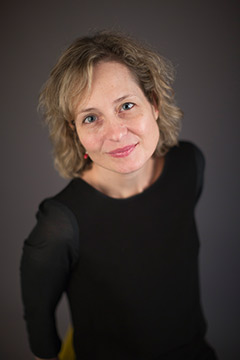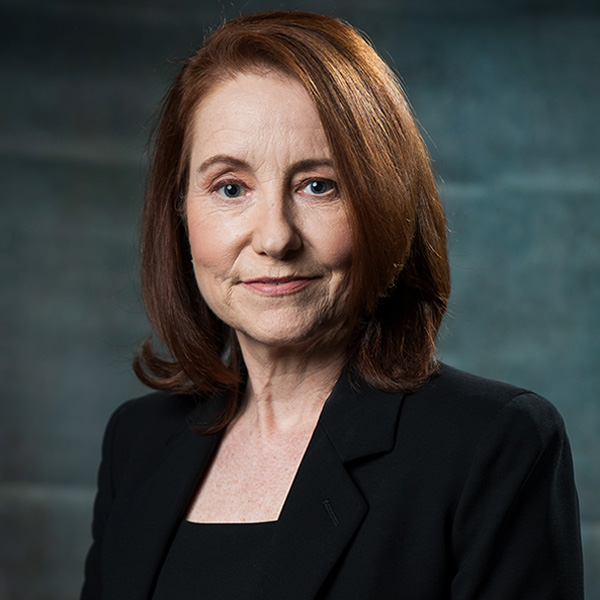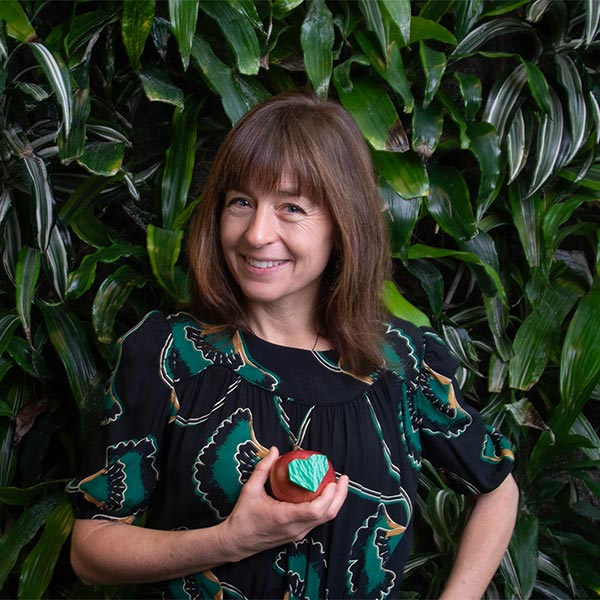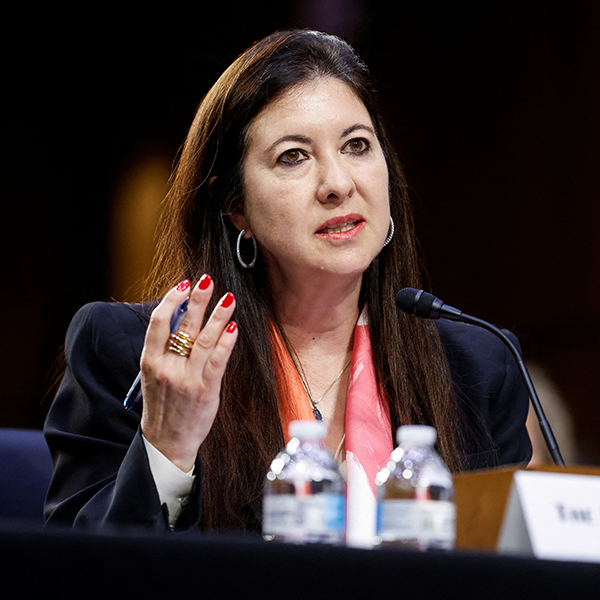The world is suddenly paying close attention to us.

“There’s a lot of interest in Canada right now,” says Catherine Porter, BA’95, the new Toronto bureau chief for The New York Times. “The feedback that [our editors] are receiving is that people are interested in more Canadian stories.”
Porter attributes some of this to Prime Minister Justin Trudeau, BA’94. “I think Trudeau has made a splash in the world, but there’s more to it than that. We’re seeing the rise of the nationalist right in so many places. There’s a sense that Canada is setting itself apart.”
The New York Times recently expanded its coverage of this country, boosting its team of Canada-focused reporters to four. The key player in that expanded coverage will be Porter.
She is looking forward to delving into Canadian issues for a largely American readership. One recent example had her writing about Canada’s approach to immigration, after U.S. president Donald Trump spoke approvingly of Canada’s merit-based system.
“[In Canada], immigration is not just about selecting newcomers based on their skills. It is part of a system that promotes both the economy and the country’s multicultural society, which has arguably become as much a part of Canadian identity as hockey,” she wrote.
“I think that’s a perfect example [of what I’ll be doing],” Porter says. “I think refugee sponsorship is a really interesting Canadian story. I think our multiculturalism and how we define that is interesting to the world. The truth and reconciliation process is interesting to the world. I’m a Canadian [and] these are things that I think make us stand out. My editors look at Canada from an outside perspective, so there is the extra benefit of having an outsider’s [viewpoint] that sees things that you don’t necessarily see when you’re here all the time.”
Much of the intended audience for the newspaper’s beefed up reporting on Canada resides on the northern side of the Canada-U.S. border. Canada is home to the second largest group of New York Times subscribers in the world. “[The paper] already has a hungry Canadian readership, and I think they’re looking at building on that,” says Porter.
In a recent interview with J-Source.ca, New York Times deputy international editor Jodi Rudoren praised Porter. “For us to be able to take one of Canada’s signature journalistic voices – to lead our expansion and be the Toronto bureau chief – it’s just a great coup, and we’re thrilled about it.”
Porter joins the Times after spending much of her career with The Toronto Star, most recently as a columnist exploring social justice issues. Porter is a two-time National Newspaper Award winner and a recipient of the Canadian Journalism Foundation’s Landsberg Award for her work on women’s equality issues. She has covered stories in Cuba, Guatemala and West Africa.
Porter says her decision to join what is, arguably, the most fabled news organization on the planet wasn’t tough to make. “I don’t know if there’s a journalist in the world who would turn down a job offer from The New York Times, right?
“The opportunity to travel around Canada and to learn more about my country was really exciting to me. That’s one of the things that the Times can do – it still has a travel budget. We can cover stories that other papers don’t have the budget to do anymore. We can do deeper, richer, longer pieces. Most newspapers in Canada have been gutted.”
Porter has become a Times staffer during one of the most politically charged moments in the newspaper’s long history. Trump, who has described the media as the “enemy of the people,” has made it no secret that he has particular scorn for The New York Times. The paper, in turn, has published some of the most damaging stories to emerge as yet about Trump and his administration.
“It is interesting to join an organization when it’s under full attack, a time when it’s at its most vital,” says Porter. “The people at the Times work incredible hours. I’ve been amazed at the work ethic, but also the passion. The stuff we do really matters in this context. I’ve only been there for a small amount of time, but I feel very proud of that.
“[At a moment like this], you realize, we’ve been pretty lethargic as a society in terms of valuing journalism,” says Porter. “We’ve gotten used to free news and our funding model is broken. It’s been a very depressing time to be a journalist. There has been lay-off notice after lay-off notice [in media organizations] in Canada and the United States. So, to join an organization that is under siege, but also rising to the challenge so beautifully… it’s just fabulous.”
Porter did some writing for the McGill Tribune during her undergraduate years at the University. She volunteered for a crisis hotline and joined the McGill masters swim club. One of the highpoints of her McGill experience was a year spent in France thanks to the University’s study abroad program – which helped spark a lifelong passion for travel (Porter has also spent extended periods of time living in India, Senegal and South America).
“That’s my favourite thing to do – to put myself in a strange place and try to figure it out. I didn’t do that enough at McGill. I was in a French city in a different part of Canada. I should have challenged myself more, but I was a bit of a nerd. I spent a lot of time studying.”
For students living in the McGill Ghetto, it can be dangerously easy to restrict yourself to the narrow confines of the downtown area, Porter says.
“I did spend one summer [exploring] Montreal. I got myself a bike and I absolutely loved it.”


